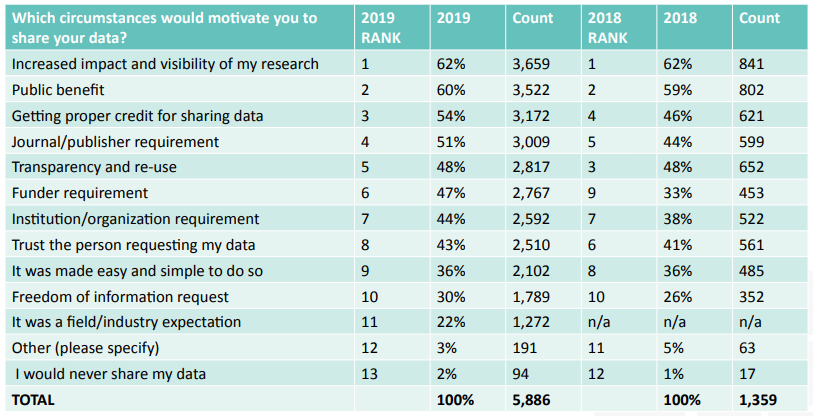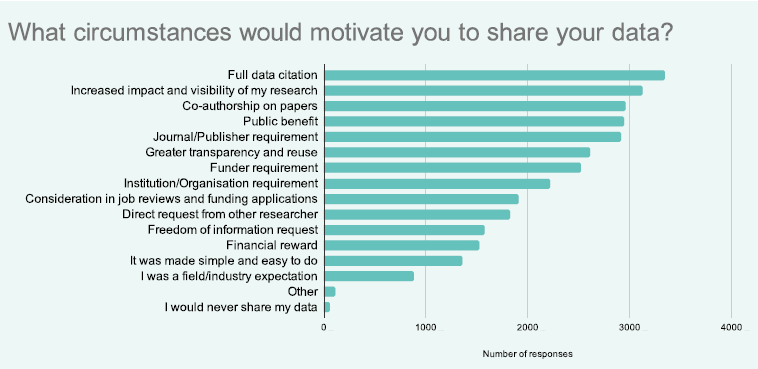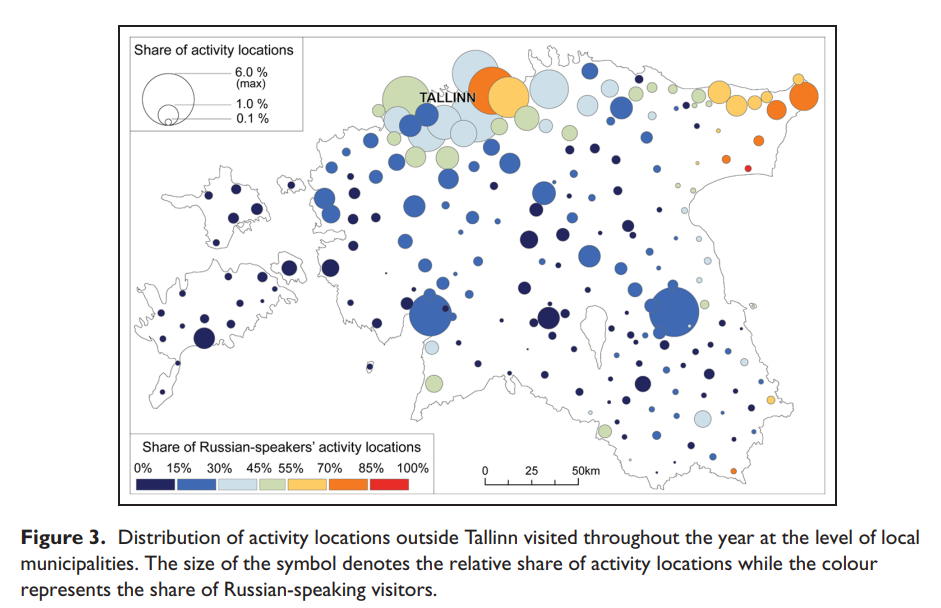Research Data Management and Publishing
Stakeholders
Interest in open research data has spread among many different parties: researchers, politicians, funders, citizens, entrepreneurs, journalists and universities.

Researchers
Global sharing of the basic source data of research will make research more transparent and replicable, thus ensuring the trustworthiness of researchers.
Researchers will be paid for the whole of their work, meaning that both the research articles and the underlying data can be cited. Practising open access increases the number of citations.
The shared data can be reused by the researchers themselves and others, provided that the data are the FAIR data or, at least, it is properly managed.
Data is the treasure which can be the basis for new interpretations and discoveries. Accessibility of open data increases and improves interdisciplinarity and cooperation between different fields of science, as well as boosts international cooperation.
The key role in open science is carried by researchers, whose work contributes to the creation of new values (data), but who also use values generated by others.
The Digital Science Report, published periodically, highlights what motivates researchers to share their research:
 Resource: Science, Digital; Fane, Briony; Ayris, Paul; Hahnel, Mark; Hrynaszkiewicz, Iain; Baynes, Grace; et al. (2019): The State of Open Data Report 2019. figshare. Report. https://doi.org/10.6084/m9.figshare.9980783.v2
Resource: Science, Digital; Fane, Briony; Ayris, Paul; Hahnel, Mark; Hrynaszkiewicz, Iain; Baynes, Grace; et al. (2019): The State of Open Data Report 2019. figshare. Report. https://doi.org/10.6084/m9.figshare.9980783.v2
A graph for 2020 where the benefits of data publication are clear: citation of data and visibility of research increase.

Science, Digital; Hahnel, Mark; McIntosh Borrelli, Leslie; Hyndman, Alan; Baynes, Grace; Crosas, Merce; et al. (2020): The State of Open Data 2020. Digital Science. Report. https://doi.org/10.6084/m9.figshare.13227875.v2
Politicians
Politicians should make their decisions in cooperation with scientists and rely on the latest research results. This would increase the transparency and improve the science-based foundation of political decisions as well as support democracy – open data would be similarly accessible for politicians, scientists and citizens. This would probably also increase trust in political decisions.
The example below is a joint study of social scientists and geographers, the consideration by politicians could contribute to solving social problems in Estonia.
Resource: Silm, S., and R. Ahas. 2014. Ethnic differences in activity spaces: A study of out-of-home nonemployment activities with mobile phone data. Annals of the Association of American Geographers 104 (3): 542–59. doi.org/10.1080/00045608.2014.892362

Funders
Funders of research want to see how the taxpayers’ money has been used for the benefit of society, and at the same time they want to be assured that instead of funding separate cases of similar research, rather, they should encourage the cooperation between researchers.
Citizens
Citizens also have the right to know what scientists are doing with the money drawn from their taxes and the right to access research results. This way, everyone could participate in science-based decision-making and increase democracy.
The ORION Open Science report Public attitudes to life sciences research in six European countries (2018) shows that interest in life sciences research is generally high among citizens:

In Estonia citizen scientists are involved in nature observations in large scale and the observational data are in eBiodiversity portal. On yhe other hand people willingly make their data available to researchers.
Additional reading:
Ann Borda, Kathleen Gray, Yuqing Fu, Research data management in health and biomedical citizen science: practices and prospects, JAMIA Open, Volume 3, Issue 1, April 2020, Pages 113–125, https://doi.org/10.1093/jamiaopen/ooz052
Enterpreneurs
In order to offer services and advance innovation, enterpreneurs are interested both in public open data and in research data.
On 28 October 2018, Rene Tammist, Minister of Entrepreneurship and Information Technology, and Mart Mägi, Director General of the Statistics of Estonia, signed a cooperation agreement concerning the improvement of the ability of state to analyse public data. Using data helps to make more precise decisions in public sector and to improve business processes in entrepreneurship. We can say that today, Estonia is moving towards making data-based governing decisions.
The saying “data are the new oil” has already become a cliché.
Information and communication technologies develop new products for the analysis of big data, for artificial intelligence and robotics. This creates new jobs for data scientists.
Media
Concerning the media, a new branch of journalism – data journalism – has emerged, analysing large sets of data, combining databases and sorting the results.
There are lots of examples of data journalism and data visualization, your just need to google. Let us pick up one of these:
What Spotify data show about the decline of English.
Organisations (universities, institutes)
An organisation with a working open data policy is innovative, visible and trustworthy in the world of science. Open data are safely stored, the legal principles and laws are similar for and followed by all organisations. For example, developing of university-wide data processing methods and software could help to save money.
Using open research data could facilitate the cooperation between entrepreneurs and research universities, leading to the development of innovative solutions and boosting the economy.

Pixabay.com


